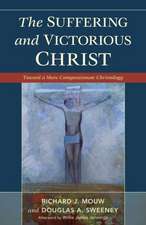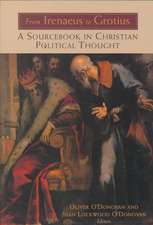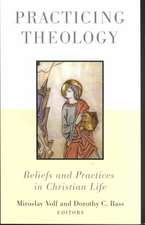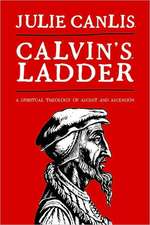He Shines in All That's Fair: Culture and Common Grace
Autor Richard J. Mouwen Limba Engleză Paperback – 31 dec 2002
Vezi toate premiile Carte premiată
Preț: 81.74 lei
Nou
15.64€ • 16.33$ • 12.94£
Carte disponibilă
Livrare economică 14-28 martie
Specificații
ISBN-10: 0802821111
Pagini: 111
Dimensiuni: 156 x 231 x 7 mm
Greutate: 0.18 kg
Editura: William B. Eerdmans Publishing Company
Locul publicării:United States
Textul de pe ultima copertă
Mouw examines long-standing Reformed arguments between those who champion the doctrine of common grace and those who emphasize an antithesis between the church and the world. Defenders of common grace account for the goodness in the world by insisting that God's grace goes "beyond salvation to more general gifts of beauty, virtue, and excellence to all human beings -- including those who do not believe in God. Those who reject the doctrine of common grace, on the other hand, emphasize the fallenness of the world and the need for the church to maintain a dramatic contrast to it. These divergent theological perspectives, while seemingly remote and abstract, lead to questions with very practical implications: What common ground do Christians share with those outside the faith? How should Christian treat their non-Christian neighbors? How should Christians relate to the world around them? Does God disapprove when Christians form close friendships with people who are quot; of the worldquot; ? Ought Christians to identify with the joys and sorrows of those who do not confess Christ as their Savior and Lord?
In the course of this book Mouw looks at these topics, connecting the larger theological discussions to pressing issues in contemporary society. He insists that we havemuch to learn from thinkers who have rejected the idea of common (non-saving) grace, but he also defends the traditional common grace teachings, showing how they provide an important basis for wrestling with key challenges in present-day culture. Ultimately, Mouw argues forcefully for a Calvinism that is capable of standing in awe before the mysteries of God's gracious dealings with all human beings -- and indeed the whole creation.
Presented as the 2000 Stob Lectures at Calvin College and Calvin Theological Seminary, these soundly reasoned, elegantly written chapters offer an updated, robust understanding of common grace that will be of great value to anyone interested in the relation of church and culture.
Notă biografică
Premii
- Christianity Today Book Award Winner, 2002















